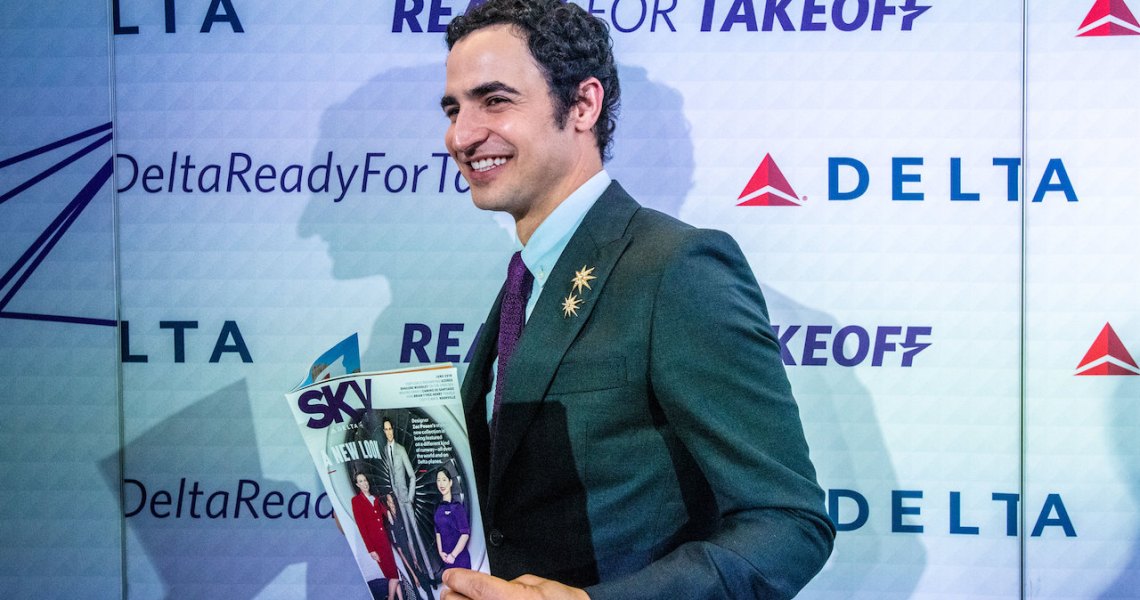Last week, Zac Posen announced the shuttering of his company House of Z — including Zac Posen, affordable handbag line ZAC Zac Posen and Saks-exclusive contemporary brand Z Spoke — citing the difficulty of the current fashion market and his inability to find a partner that could help bring the brand to a more sustainable level of success.
The news comes at a difficult time for luxury fashion. Mid-size brands and designers like Zac Posen and contemporaries like Jason Wu are competing with brands owned by conglomerates like Richemont and LVMH, which have the benefit of a giant parent company with global reach. They often rely on the patronage of private equity firms and investors that buy them, then struggle to live up to the growth expected of them from their new owners. To grow, these brands are pushed into multiple directions, like creating lower-priced, more accessible lines that dilute the brand.
Zac Posen, the brand, was owned by investment firm Yucaipa Cos., which acquired the majority stake of the company from Sean Combs in the late 2000s. As Business of Fashion pointed out, when private equity firms buy a property, they expect fast growth and an expanding scale. In the intervening years, Zac Posen increasingly introduced contemporary lines and affordable collaborations. Posen designed a collection in collaboration with Target in 2010 and also introduced a line of affordable handbags sold at outlets like Nordstrom Rack called ZAC Zac Posen. In 2014, Posen partnered with David’s Bridal — another company that has faced financial struggles — on a line of affordable bridal gowns.
No specific sales figures for the various, affordable collections and collaborations are available, and representatives for Posen did not respond to requests for comment.
It’s not uncommon for a brand to lose its luster when it veers from its original business model. Yeezy took a serious hit in the last year when Kanye West drastically raised the amount of sneakers being produced and brought down prices. The result was that Yeezys became more accessible than ever, and as a result. customers became less interested in buying them. One model, the Yeezy Boost 350 V2 in the Zebra colorway, dropped from consistently selling for more than $1,000 on the resale market to going for less than $400.
In 2016, Coach reversed declining sales by doing the opposite: pulling its products out of stores and reducing wholesale in general, while cutting back on promotions. The goal was to retain its prestigious brand name. But not every foray into affordability is negative. Michael Kors cited launching more affordable lines of accessories and bags as the reason his brand reached 25% of the U.S. handbag market share in 2016.
Some of Zac Posen’s contemporaries seem to be facing the same problem of high-growth expectations and uncomfortable pushes into “accessible luxury” to meet them. Jason Wu, under the ownership of private equity firm Interluxe, produced collections for Kohl’s in 2019 and Eloquii in 2018, and expanded his affordable Grey Jason Wu line, before the company was bought in May by Chinese private equity firm Green Harbour. Christian Siriano has done collaborations with Payless and has an ongoing partnership making affordable fashion with J. Jill.
Ad position: web_incontent_pos1
“The mass-market and industry appeal of Posen’s collaborations and designs leads me to wonder how the business was managed to warrant a cold shutdown,” said Syama Meagher, CEO and founder of Scaling Retail. “I would have expected a restructuring, but not this. Posen isn’t alone in a string of brands from the early 2000s that no longer carries their former star power. Thakoon, Behnaz Sarafpour and Derek Lam have all had to restructure.”
Meanwhile, luxury groups have continued to dominate the industry. LVMH recorded a record $53 billion in revenue 2018, with Louis Vuitton, the biggest brand in its portfolio, exceeded $10 billion. Meanwhile Gucci, owned by Kering, brought in close to $9 billion last year.
These groups are only getting larger, with new brands like Fenty being created all the time, leaving less room for smaller luxury brands. After Capri Holdings, formerly Michael Kors Holdings, bought Versace in late 2018, it left relatively few luxury brands of a significant size not under the auspices of a larger conglomerate. Stella McCartney briefly went independent after it split from Kering before joining with LVMH less than a year later.
“Building a successful brand requires significant advertising investments, and in the luxury apparel segment, there are many well-established brands with loyal customers,” said David Naumann, vice president of retail marketing at enVista. “Zac Posen’s styles were well designed, but the focus on attire for more formal occasions — not everyday wear — may have limited the target market for the main collection’s designs.”
Only massive outliers, like Chanel, remain as luxury brands able to scale to a significant size without being part of these groups. With the amount of oxygen taken up by Richemont, Kering, LVMH and, to a lesser extent, Capri Holdings, there’s little room left for even a medium-size luxury brand to carve out a niche.
Ad position: web_incontent_pos2
Posen told Vogue last week that it’s a “difficult climate out there… it’s not an easy time in our industry.” Brands that don’t have the support and reach of the big conglomerates have it even harder.




